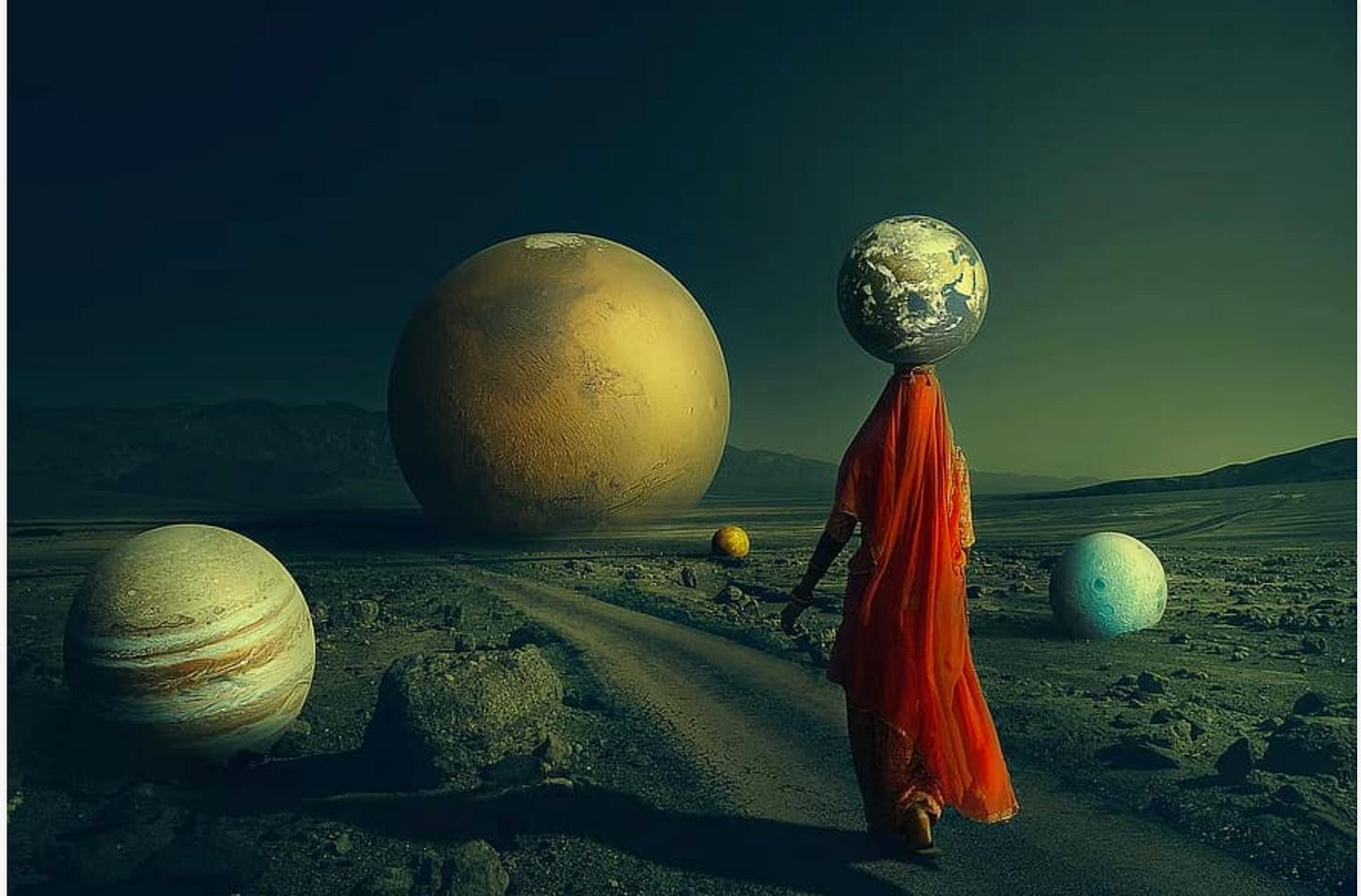T2B27: Transitioning to Climate
Newslet
I have always had a soft spot for the Gaia hypothesis even if I don’t necessarily buy the details of the original Lovelock-Margolis version. Here’s a new take:
Ecological Competition
The second world war marked the end of the old world. Whatever their other problems, both the US and the Soviet Union were post-enlightenment regimes where formal inequality (note the use of ‘formal’ rather than ‘actual’) was abolished. For the first time in human history, the global struggle was over the means of production and their ownership. In my view, that struggle suffers from a version of the figure-ground illusion.
We struggled over who gets to control the value created by labor, but entirely neglected the ecological background against which all production takes place. Economy was center stage and ecology at the margins.
The consequences: ecological collapse more generally, and climate change in particular.
But there’s nothing preventing the modern system from expanding and turning ecology into figure rather than ground.
In fact, competing ecological visions might become sites for conflict. Why assume ecology will always be associated with harmony?
Think about it this way: four hundred years ago, no king would have invaded his neighbor to grab their petroleum but now wars over oil are routine. The minute ecology becomes integrated into the world system, it too will become a source of conflict and competition and all the things we associate with oil today.
I will be exploring climate change in that decidedly non-romantic frame. As long as it was a peripheral topic ‘owned’ by treehuggers, it stayed conflict free, but once it occupies social center-stage, it will be as much a topic of contention as any other.
I might go so far as to speculate that the ‘Ecological Civilization’ might become the ideological umbrella under which China will differentiate itself from the US, i.e., as two visions of an ecological order and not just an economic one. I just saw this piece in Foreign Affairs written by (or written for) Biden earlier this year when he wasn’t the nominee, let alone president. Biden says
Economic security is national security. Our trade policy has to start at home, by strengthening our greatest asset—our middle class—and making sure that everyone can share in the success of the country, no matter one’s race, gender, zip code, religion, sexual orientation, or disability. That will require enormous investments in our infrastructure—broadband, highways, rail, the energy grid, smart cities—and in education. We must give every student the skills necessary to obtain a good twenty-first-century job; make sure every single American has access to quality, affordable health care; raise the minimum wage to $15 an hour; and lead the clean economy revolution to create ten million good new jobs—including union jobs—in the United States.
He’s marrying Green New Deal language with national security language, drawing the contours of the conflicts to come. I am not saying this ecological competition is about to happen during Biden’s term. It could, but likely not, since four years isn’t long enough. But I would be very surprising if it never did, so we might as well understand the factors that are pushing us in that direction. We couldn’t have predicted that the first stage of capitalism would lead to two world wars, but it was clear that the capitalist economy was going to be a source of conflict.
We are in the same stage w.r.t. ecology.




